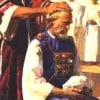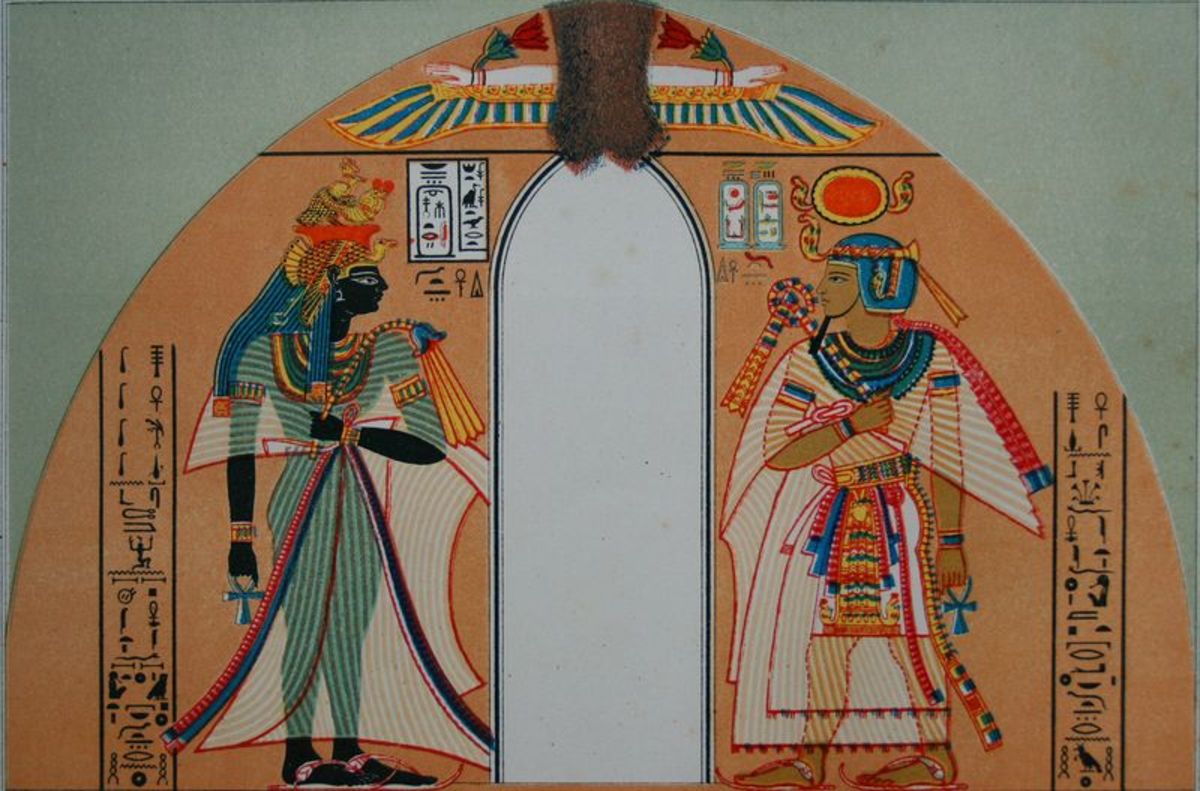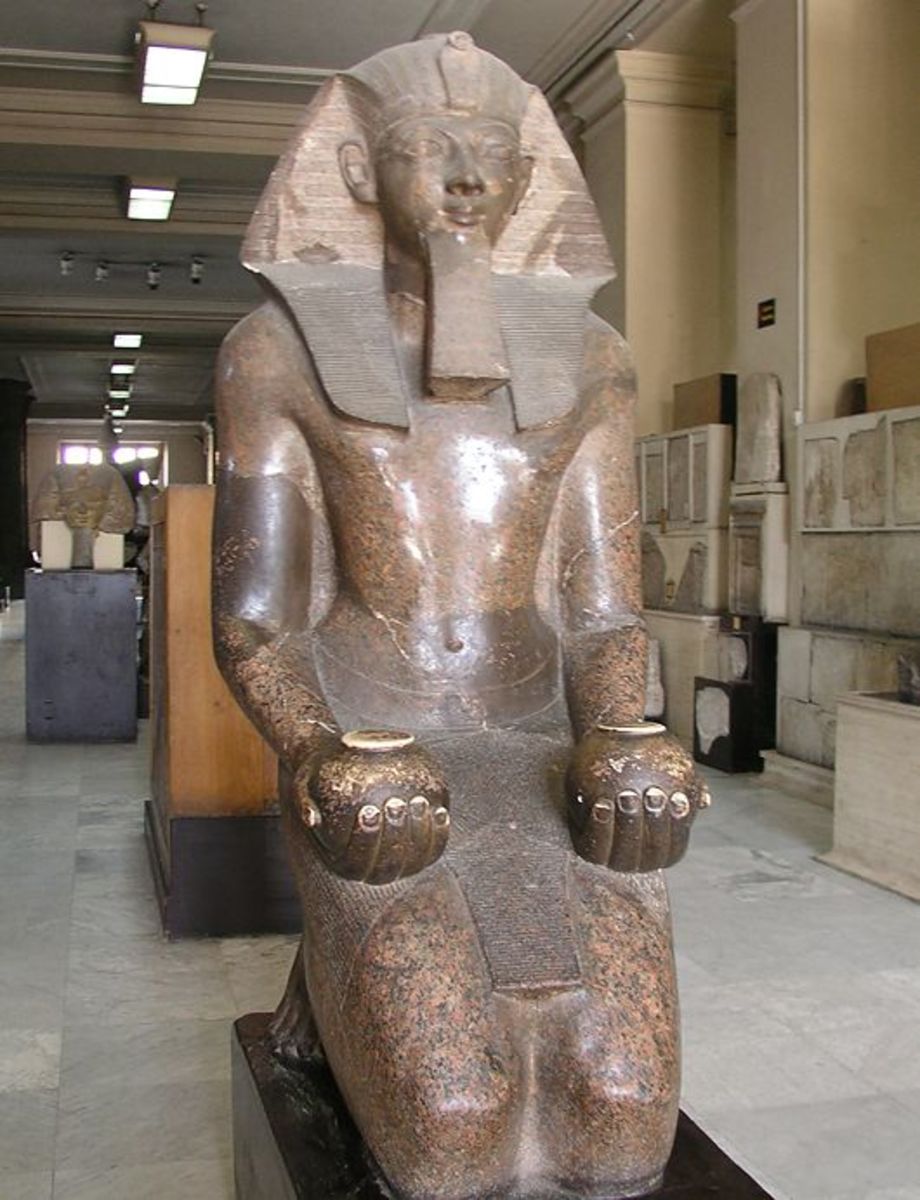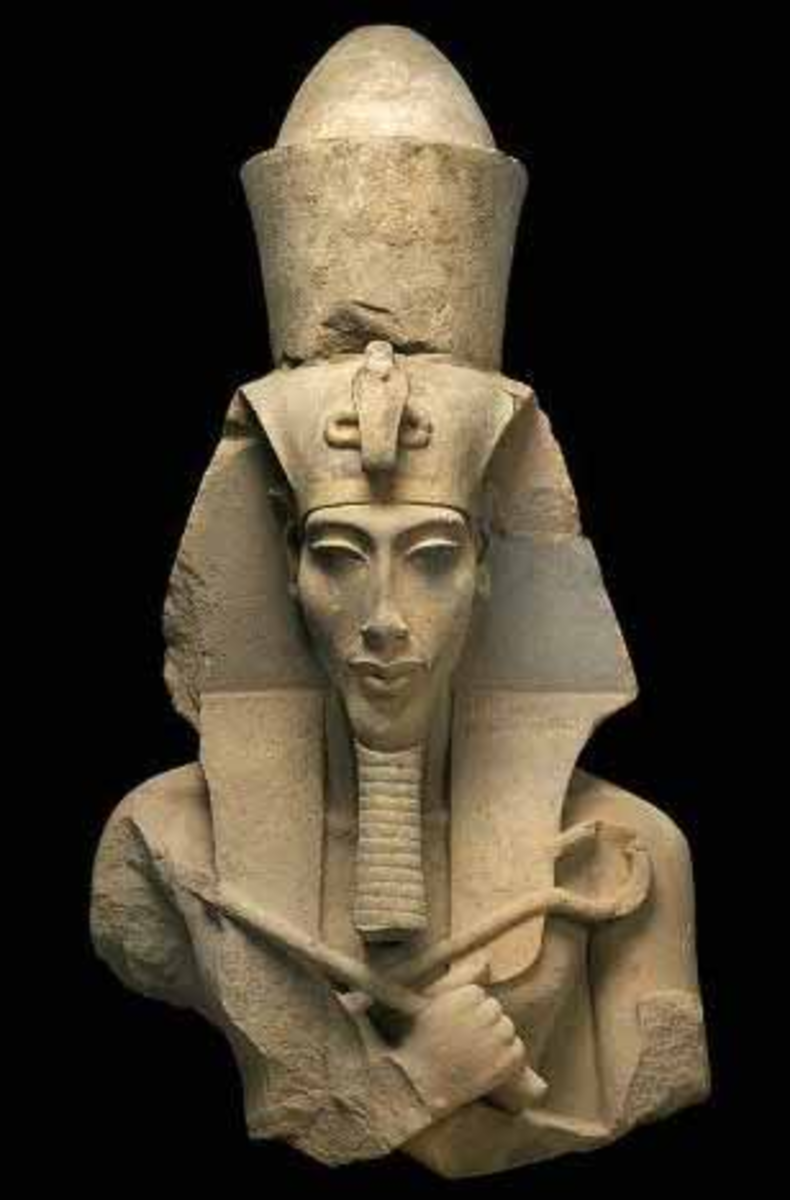Rediscovering the Exodus 9
The last article established some basic considerations that are hard to refute. For your recollection, these were: 1. The Exodus occurred in the last two years of the reign of Amenhotep III, 2. Moses was a Crown Prince of Egypt and in fact was the renegade Thutmose, 3. Monotheism was already becoming a contentious issue in Egypt and was challenging the existing pantheon of gods. 4. The city of Pi-Ramses was actually Avaris and over a twenty-five year span, Amenhotep used slave labour comprised of the Hapiru, the same people it is believed were the Hebrews. All this sounds very convincing but it is only the tip of the proverbial iceberg. There is far more evidence which is about to be discussed which helps cement the case solid. Once again, I repeat my belief that the more scientific, archeological, historical evidence that can be provided to support the Exodus story, even if it does not actually portray the events exactly as they are described in the Torah these are vital to the overall teachings of the Law Giver, proving that it was not the story but the lessons that must be learned by all. Again, this is the essential pillar of Karaism, that the teachings and the law supersedes all else. And if clarifying the means by which these teachings are portrayed helps to create believers of those that have lost their way, then so much the better. Because teaching is what not only being a Karaite but being Kahana is what our purpose in life has been since the beginning.

Dating the Plagues
The matter of the plagues has already been discussed in the article http://hubpages.com/hub/Rediscovering-the-Exodus and therefore rediscussing each individual plague doesn’t serve any purpose in establishing the time line since none were ever recorded by Egyptian historians. But this article did serve the purpose of demonstrating that such events could occur if there was a major eruption. And the reality of an eruption of this magnitude was thoroughly discussed in http://hubpages.com/hub/Rediscovering-the-Exodus-2 where we see there were a series of major volcanic eruptions occurring in the thirteenth and fourteenth centuries BC, the Thera eruption being the most catastrophic and the one which occurred during the reign of Amenhotep III.
Now the first of those articles looked at the plausibility of the plagues occurring but the question has always been why was there never any record of them in Egyptian history? And as mentioned previously, Egyptian Pharaohs had no desire to list their disasters for posterity, concentrating only on their successes. Unfortunately, this meant that even if they did occur, there purposely would be no record of them as proof and that is where most investigators leave off their pursuit and classify the event as impossible to prove. Had they thought beyond the black and white they would have seen that there was circumstantial evidence to suggest the plagues actually did occur and they happened in the last two years of Amenhotep III’s reign.
For every action there is a reaction. We have all experienced this law of mankind. If someone was to hurt us, we would take action to protect ourselves from it ever happening again. There is always a response to an adverse event and Amenhotep was no different from any other human. He had been hurt, his country had suffered, his firstborn was lost to him forever, and he would rely on the gods to ensure that he would never suffer such a catastrophe again. There was only one god of Egypt that he would turn to. The goddess of disasters, Sekhmet and in the last two years of his reign, the Pharoah dedicated to Amun and Ra at his birth was suddenly history’s biggest advocate of this small time goddess. He began erecting hundreds upon hundreds of statues all over the country. The temple at Ashur that he was building for the chief goddess Must was suddenly dedicated to this second string goddess, Sekhmet. Many of these statues can now be found in museums all over the world because he erected so many. At Luxor alone he erected seven hundred Sekhmet statues. So despite history’s recording of Amenhotep III’s reign as being a period of stability, prosperity and expansion, there was obviously something that occurred that sent shivers down his spine and made him start trying to appease the goddess of disasters almost to the point of madness. If we examine Egyptian Mythology and realize that Sekhmet according to legend tried to destroy all of mankind and only through the intervention of her father Ra was mankind saved, then we have a gauge of the degree of madness he was experiencing. As far as Amenhotep was concerned, he was saving his people, his country, his kingdom from total destruction; the weapons of mass destruction known as the Ten Plagues. He was desperately trying to appease the goddess of disaster so that she would stop the plagues being visited upon the land by this unknown God of his son, Thutmose.
Summary
Now we have a date. The last two years of Amenhotep III"s reign which places the events somwhere between the years 1350 to 1360 BC since we don't actually know the actual dates of Egyptian Pharaohs within more or less of a decade. Even though the historical records do not say that the plagues were visited upon Egypt at this time, we have enough evidence in the form of statues to suggest that a major catastrophe did occur that terrified the Egyptian monarch beyond any nightmare that we could imagine. But then again, we don't have to imagine it because the Torah provides us with a pretty accurate description of what occurred. I'm not about to stop here, there is more to my investigation yet to be revealed but that will have to wait until the next article. So until then, Peace be with You.
Avrom Aryeh Zuk Kahana








